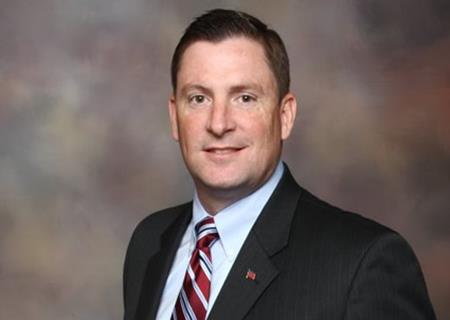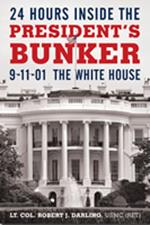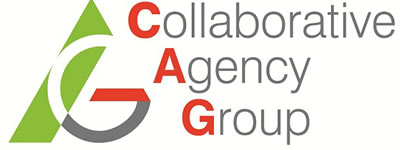
18 Sep Robert Darling

Speaker: Robert Darling
Author of 24 Hours Inside the President’s Bunker 9-11-01 The White House, Marine Helicopter Squadron One Presidential Pilot for President Bill Clinton
Speech Topics Include:
- September 11, 2001 – The White House , A Crisis Leadership Presentation
Lieutenant Colonel and speaker Robert Darling retired from the United States Marine Corps with just over twenty years of active duty service in October 2007. He flew Cobra attack helicopters in Desert Shield and Desert Storm during the first Gulf War and in Somalia, Africa in support of Operation Restore Hope. In June 1998, he was selected to fly as a presidential pilot with Marine Helicopter Squadron One and in October 2000, he was selected to work for The White House Military Office, Airlift Operations Department. It was in that capacity that, then Major Darling supported the President, Vice President and National Security Advisor in the Presidential Emergency Operations Center (PEOC) on September 11, 2001.
Bob graduated from Iona College, New Rochelle, NY with a BA in Economics in 1987. Upon graduation he was commissioned a 2nd Lieutenant aboard the USS Intrepid. In 2002 speaker Robert Darling attended the Naval Postgraduate School, Monterey, CA where he earned his MBA in Financial Management.
At the urging of family, friends, and colleagues to share his witness to American history, Bob wrote his memoir, “24 Hours Inside the President’s Bunker, 9/11/01: The White House. As a speaker Robert Darling continues to share his personal experience and knowledge of crisis leadership with many military, corporate, and university audiences nationwide. He is the President of Quantitative Analytics, LLC, an aviation operations and logistics consulting company located in Stafford, Virginia.
September 11, 2001 – The White House , A Crisis Leadership Presentation
On September 11th 2001, Lieutenant Colonel Darling was working in the White House Military Office and was initially tasked to coordinate airlift assets for the President’s evacuation to an undisclosed site. However, he was quickly recruited to provide his military expertise and became a key liaison between the Vice President, National Security Advisor and the Pentagon and worked directly with the National Command Authority to respond to the terrorist attacks. Lieutenant Colonel Darling witnessed first hand the enormity of the crisis leadership decisions that were made that day on behalf of all Americans.
*Your audience will learn what the 9/11 Commission was initially blocked from knowing; who knew what, when, and what specific actions were taken by our nation’s highest leader’s to defend America.
*This presentation is insightful, inspirational, patriotic and will instill in every person the important role each of us play in supporting our warfighters as they continue to defend America.
It is through the influence process that we generate and manage change. Like most things, the process can be handled poorly or well. It can be employed to foster growth and to move people away from negative choices and in more positive directions, thereby creating the conditions for new change opportunities. Or, it can be used clumsily, reducing the chance for genuine movement and, in the worst of cases, boomeranging into conflict and resentment.




